2025 Xi'an Xinjiang Restaurant Top 10 Recommended
-
75 per capita Taste 8.9 Environment 8.9 Service 8.91
- Score
- 85
- popularity
- 20016
-
Adasi Andingmen/Yuxiang Gate
59 per capita Taste 8.9 Environment 8.9 Service 8.92- Score
- 82
- popularity
- 12741
-
Muwa Daming Palace/Xi'an Station
61 per capita Taste 8.9 Environment 8.9 Service 8.93- Score
- 78
- popularity
- 14243
-
Lord Bayi Xiaozhai / Yintai
63 per capita Taste 8.9 Environment 8.9 Service 8.94- Score
- 77
- popularity
- 14130
-
Kashgar
52 per capita Taste 8.9 Environment 8.9 Service 8.95- Score
- 74
- popularity
- 13493
-
Loulan Xinjiang style restaurant Dragon Shouyuan
42 per capita Taste 8.9 Environment 8.9 Service 8.96- Score
- 71
- popularity
- 17471
-
Loulan Guli Andingmen/Yuxiang Gate
54 per capita Taste 8.9 Environment 8.9 Service 8.97- Score
- 68
- popularity
- 16687
-
Xinjiang style restaurant Xingqinggong Park/Xi'an Jiaotong University
57 per capita Taste 8.9 Environment 8.9 Service 8.98- Score
- 67
- popularity
- 17740
-
Xinjiang Balangyan Restaurant
53 per capita Taste 8.9 Environment 8.9 Service 8.99- Score
- 65
- popularity
- 18964
Recommended rankings for related categories
- Xi'an Shaanxi restaurant
- Xi'an Foreign Restaurant
- Xi'an Hunan restaurant
- Xi'an Xinjiang restaurant
- Xi'an Western Restaurant
- Xi'an Cafe
- Xi'an Japanese cuisine
- Xi'an Sichuan restaurant
- Xi'an hot pot
- Xi'an boutique bar
- Xi'an buffet
- Xi'an Korean cuisine
- Xi'an shabu shabu restaurant
- Xi'an cake shop
- Xi'an steamed buns
- Xi'an noodle restaurant
- Xi'an Liangpi
- Xi'an roadside stalls
- Xi'an Legendary Bistro
- Xi'an skewers
- Xi'an string of incense
- Xi'an crayfish
Top 10 popular Xi'an Xinjiang restaurants
-
1
20016
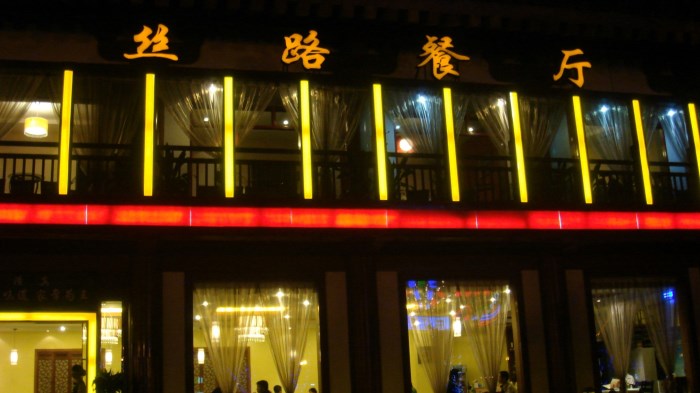
Silk Road Restaurant
Affected by geographical factors, 80% of Xinjiang dishes are related to mutton, and it can be said that the quality of mutton directly determines the production level of a Xinjiang restaurant. Insiders often measure the quality of mutton by the origin of mutton, and it is recognized in China as Ningxia, Qinghai saline-alkali land, and high mountain areas in northern and southern Xinjiang
-
2
18964

Xinjiang Balangyan Restaurant
Balang Yan is a typical family-run restaurant, the family takes care of the kitchen, front desk, waiter work, love to chat with customers, the atmosphere is harmonious. One of the restaurants is from Urumqi, and the biggest feature is that it adheres to local practices in Xinjiang and has authentic tastes. Shredded chicken nuggets with pepper sesame chicken
-
3
17740
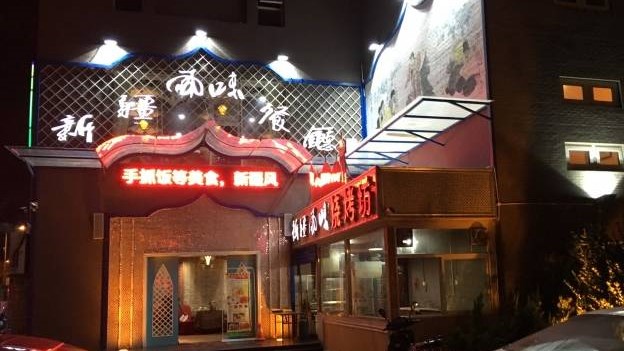
Xinjiang style restaurant
Xinjiang Flavor Restaurant has been open for more than 20 years and is regarded as the veteran of Xinjiang cuisine in Xi'an. In 2017, it was relocated from Andong Street to the southwest gate of Xi'an Jiaotong University, and the new store is quite magnificent, but the taste has declined significantly, and it is difficult to bear the name of a time-honored brand. Due to the fact that the neighborhood is mainly residential
-
4
17471

Loulan Xinjiang style restaurant
Loulan is not a chain store, it has nothing to do with Loulan Guli, it is just a relatively popular small restaurant in Hongmiaopo. Loulan focuses on Xinjiang home-cooked food, and does not provide large dishes suitable for banquets and large-scale dinners, such as roasted whole sheep, roasted lamb legs, and lamb scorpion pot
-
5
16687
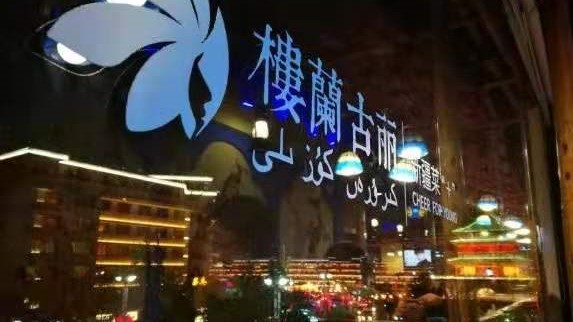
Loulan Guli
Loulan Guli can be described as a hegemon of Xinjiang cuisine in Xi'an, with more than a dozen branches all over the business district, and there are almost large shopping malls in Loulan Guli, which is super well-known. Loulan Guli adopts standardized management. The chefs of each branch are directly appointed by the headquarters, and the ingredients are also uniformly distributed.
-
6
14243
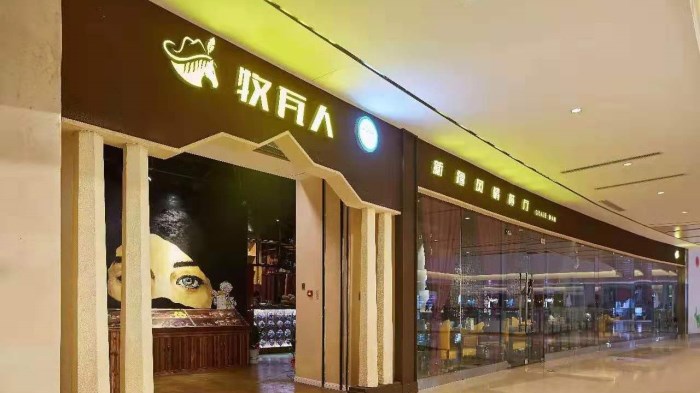
Muwa
The shepherd, also called the wrangler, is actually the same shop. Muwa is one of the few chain brands in Xi'an, and the scale is not as large as that of Loulan Guli, which is spread all over the city, and the location of the branch is not so convenient, but the production is better. The Muwa people are very creative in cooking, and some ingredients are matched
-
7
14130
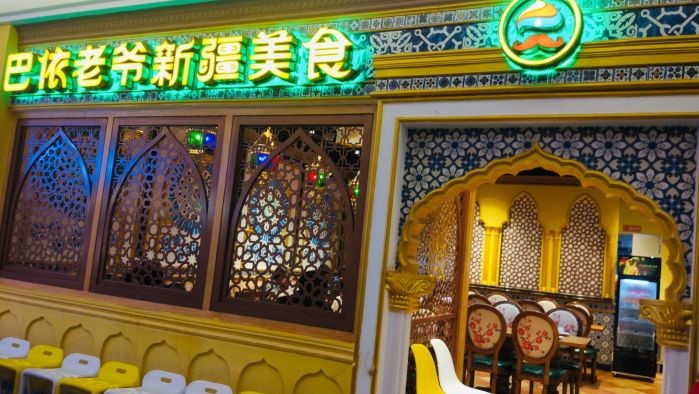
Lord Bayi
Distributed in more than 20 cities across the country, Bayi has always been operated as an independent store on the street, and has become a shopping mall store in Xi'an, with a great change in style. The storefront has changed the greasy feeling on the street, and a large piece of log-colored tableware is decorated with Xinjiang elements, which is simple and does not lose the characteristics of the Western Regions. table
-
8
13493
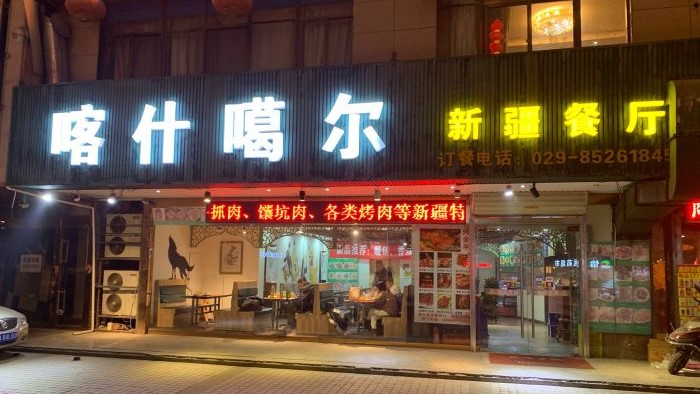
Kashgar
In the public's impression, Xinjiang cuisine is generally mutton. In fact, chicken, which has always been the only thing in Chinese banquets, is also the star ingredient of Xinjiang cuisine. Kashgar relied on a large plate of chicken to occupy a place in Xi'an. Dapan Chicken has super Kochi in the country
-
9
12741
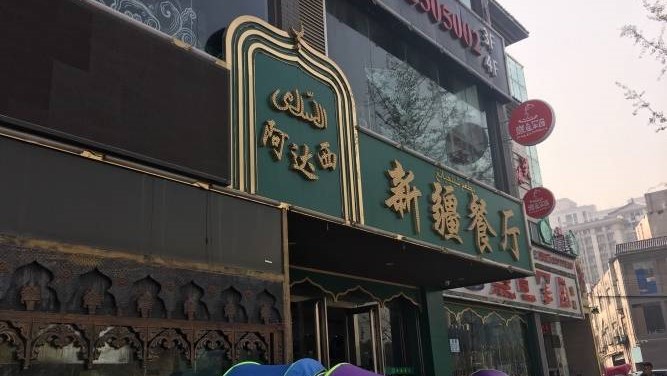
Adasi
In many cities, there are one or two old Xinjiang restaurants near universities, and although there is no restaurant-style service, it has won the recognition of surrounding students and residents because of its more down-to-earth environment and approachable prices. And quite a few college students
Top Leaderboard Recommendations
-
▸
Xi'an Shaanxi restaurant is ranked in the top 10 recommended
-
▸
Top 10 recommended foreign restaurants in Xi'an
-
▸
Xi'an Hunan restaurant is ranked in the top 10 recommended
-
▸
Xi'an Xinjiang restaurants are among the top 10 recommended
-
▸
Xi'an Western restaurants are among the top 10 recommended
-
▸
Xi'an cafes are in the top 10 recommendations
-
▸
Top 10 recommended Japanese cuisine in Xi'an
-
▸
Xi'an Sichuan restaurant is ranked in the top 10 recommended
-
▸
Xi'an hot pot is ranked in the top 10 recommendations
-
▸
Top 10 recommended boutique bars in Xi'an
-
▸
Xi'an buffet is ranked among the top 10 recommendations
-
▸
Xi'an Korean cuisine is ranked in the top 10 recommendations
-
▸
Xi'an shabu shabu restaurant is ranked in the top 10 recommended
-
▸
Xi'an cake shop is ranked in the top 10 recommendations
-
▸
Xi'an steamed buns are among the top 10 recommended
-
▸
Xi'an noodle restaurant is ranked in the top 10 recommended
-
▸
Xi'an Liangpi is ranked in the top 10 recommendations
-
▸
Xi'an roadside stalls are among the top 10 recommended
-
▸
Xi'an Legend Restaurant is ranked in the top 10 recommended
-
▸
Xi'an skewers are among the top 10 recommendations
-
▸
Xi'an string of incense is ranked among the top 10 recommendations
-
▸
Xi'an crayfish is ranked in the top 10 recommendations


